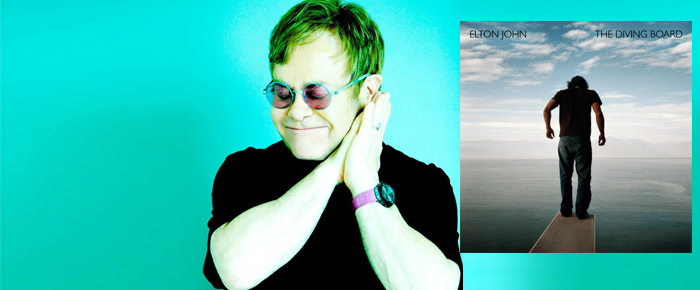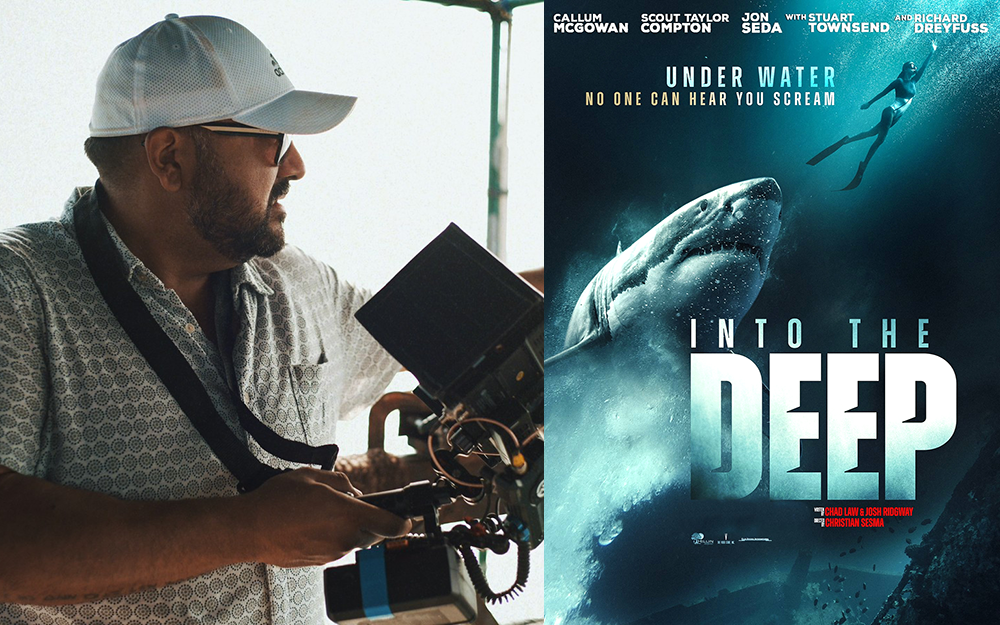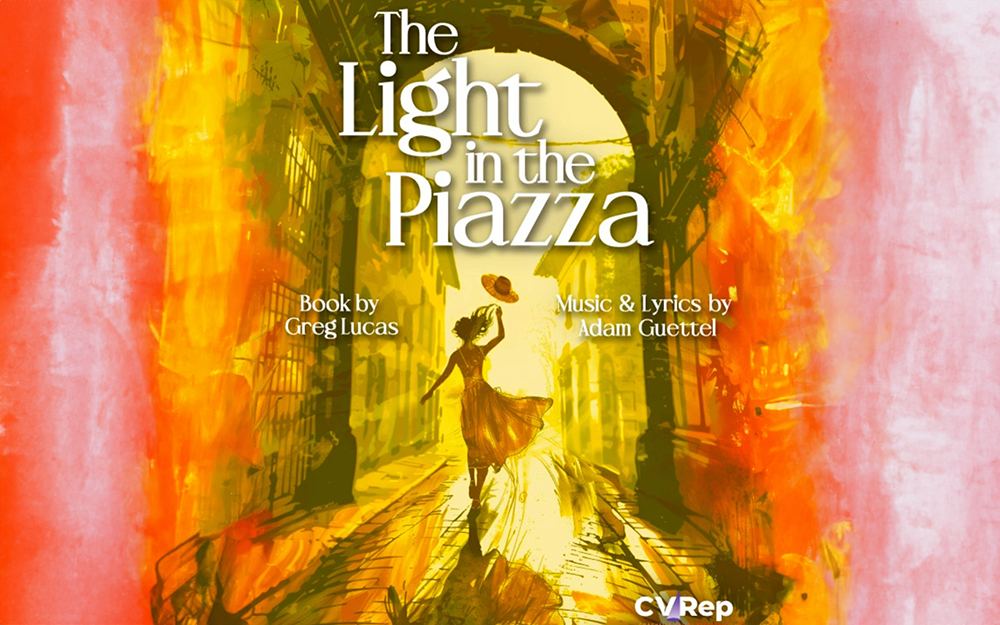
By Eleni P. Austin
Elton John has always lived life in a whirlwind, now at age 66, he finally seems to be slowing down. Reginald Kenneth Dwight was born in Pinner Middlesex, England in 1947. A musical child, he began playing piano at age four and when he was 11, he won a scholarship to the Royal Academy Of Music. As the ‘60s dawned, he joined his first band, Bluesology. By 1966, Bluesology became Long John Baldry’s backing band. Frustrated with that arrangement, Reg struck out on his own.
Following failed auditions with Prog-Rock bands Gentle Giant and King Crimson, Reg Dwight answered an ad placed by Liberty Records. There he was given a stack of lyrics left by Bernie Taupin. Dwight added melodies to Taupin’s music and the two began to correspond through the mail. By the time they met in person six months later, Reg Dwight had re-christened himself Elton Hercules John, (an homage to Bluesology sax man, Elton Dean and Long John Baldry).
Although John and Taupin began as staff songwriters for Dick James Publishers, pretty soon they began crafting songs for Elton to sing himself. His debut, Empty Sky was released in 1969 to little fanfare.
For Elton’s self-titled sophomore effort, the pair hooked up with producer Gus Dudgeon and arranger Paul Buckmaster. Elton John included such seminal hits as “Your Song” and “Take Me To The Pilot.” Both songs achieved radio airplay in England and America, suddenly Elton’s career was taking off.
In August 1970, Elton played a six-night sold-out run at the legendary West Hollywood club, the Troubadour. Neil Diamond introduced Elton’s first set, artists like Quincy Jones and Leon Russell were in the audience. Elton took command, displaying a sense of showmanship that rivaled Jerry Lee Lewis. It was a watershed moment, but it was just the beginning.
By late 1970, Elton released Tumbleweed Connection, the first of many masterpieces. The creativity just kept coming. The duo of Elton John and Bernie Taupin were lean and hungry. In the space of six years they created a series of records (Madman Across The Water, Honky Chateau, Don’t Shoot Me, I’m Only The Piano Player, Goodbye Yellow Brick Road, Caribou, Captain Fantastic And The Brown Dirt Cowboy Rock Of The Westies and Blue Moves), that were critically and commercially successful.
As the ‘70s closed, Elton John was a bona fide superstar. Bejeweled and bespectacled, his outre’ appearance was as celebrated as his songcraft. Even an admission of bi-sexuality couldn’t keep him from storming the pop charts.
In the early ‘80s, John and Taupin briefly suspended their partnership, and Elton John went through a fallow period. The hits kept coming, but there wasn’t the same sense of urgency to his music.
After a successful stint in rehab for drug addiction, Elton roared through the ‘90s. Collaborating with Tim Rice, he created the soundtrack to Disney’s “Lion King” movie and they won an academy award. He formed a lasting romantic partnership with David Furnish, and continued at a prolific pace. His music was successful, but the hard charging rock of the ‘70s had been supplanted by a more ballad heavy Adult Contemporary sound.
Luckily, for his first record of the 21st century, Songs From The West Coast, Elton John seemed thoroughly re-energized. This mini-renaissance has continued through the last few years. Albums like Peach Tree Road and The Captain And The Kid were a welcome return to form.
Three years ago, Elton John and David Furnish became parents. Elton also reached out to an early mentor, Leon Russell. The Oklahoma singer/songwriter had never stopped performing and recording, but his presence on the pop charts was nil. Enlisting the help of protean producer T-Bone Burnett, they created The Union. Another massive success, the album debuted at number 3 on the Billboard Top 100.
At the beginning of 2013, John and Furnish welcomed a second son, and Elton recruited T-Bone Burnett to produce his most stripped down record since Tumbleweed Connection. Employing a small trio, drummer Jay Bellerose, guitarist (and Texas Blues Rock legend) Doyle Bramhall II and neo-soul singer Raphael Saadiq on bass, the result is Elton John’s 31st album, The Diving Board.
The album opens with “Oceans Away,” a stately piano ballad that pays homage to the Greatest Generation… “I hung out with the old folks, in the hope that I’d get wise/I was trying to bridge the gap between the great divide.”
Because The Diving Board eschews Elton’s more flamboyant instincts, it seems tempting to portray the record as some sort of sequel to Tumbleweed Connection. But that simply isn’t the case. While Tumbleweed.. hewed closely to a Country Rock/Blues paradigm, musically The Diving Board is all over the map.
Three songs, “Oscar Wilde Gets Out,” “A Town Called Jubilee” and “The Ballad Of Blind Tom” wed ambitious narratives to ornate melodies. On “Oscar Wilde…” Elton’s piano gets a workout, blending gilded filigrees with long Ragtime runs. The lyrics offer a pocket history of the persecution of the celebrated Irish poet.
“A Town Called Jubilee” has a strong Gospel flavor, which is apropos, since “Jubilee” is an unsubtle metaphor for heaven. Elton’s piano blends nicely with gentle lap steel and in-the-pocket percussion.
“The Ballad Of Blind Tom” is “Mr. Bojangles Meets The Who’s Tommy.” Taupin’s lyrics are clunky when describing Tom, the musical savant… “His black hands resting on the keys, hoppin’ like a big ol’ frog and hissin’ like a train…” Ugh. Luckily Elton’s airy glissandos distract from this antiquated tableau.
Two tracks, “My Quicksand” and “Home Again” present the jazzy side of Elton. The former opens with dour piano chords. A mournful treatise on a toxic relationship, it allows Elton to stretch different musical muscles. His vocals match the torchy mien of Sinatra, while his piano fills echo the burnished genius of Oscar Peterson.
The latter is a brittle recollection of a life well spent. “We all dream of leaving, but wind up in the end/Spending all our time trying to get back home again.”
The best tracks on this very long album are “Can’t Stay Alone Tonight,” “Take This Dirty Water,” “Voyeur” and “Mexican Vacation (Kids In The Candlelight).” On “Can’t Stay Alone..” a jaunty melody and rippling piano runs belie introspective words of recrimination…. “Bruised in this cold war of words We’ve come undone, two loose ends alone.”
The melody on “Take This Dirty Water” is positively joyful. A handclap rhythm, serpentine steel guitar and Elton’s feather-light piano almost camouflage a series of common sense homilies that feel a little too preachy.
“Voyeur” is a minor key masterpiece that recalls “Blossom,” an underrated deep cut from James Taylor’s Sweet Baby James album.
Finally “Mexican Vacation (Kids In The Candlelight)” is a balls-out rocker. Rollicking piano fills give the tune a New Orleans patina. Despite the fact that Elton is certainly eligible for his AARP membership, this Honky Cat hasn’t lost his swagger.
The album closes with the title track. A low key meditation on a life spent in the spotlight, the instrumentation includes Hammond B3, trumpet, bass trumpet, flugelhorn, trombone, tuba and euphonium.
As they edge toward 70, Elton John and Bernie Taupin may never again reach the artistic heights they achieved between 1970 and 1976. But that’s okay. Time to relax, cut down the relentless tour schedules and enjoy family life. If anyone deserves to rest on his laurels, it’s Elton John.











































